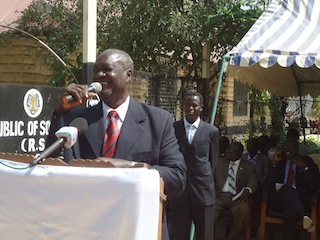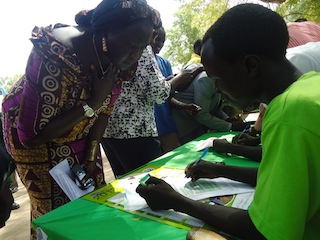SIM card registration launched in Jonglei
February 9, 2013 (BOR) – South Sudan has begun a process of registering all telephone subscriber identity module (SIM) cards in order to track those responsible for issuing threats and conducting criminal activity using mobile phones.

On Saturday South Sudan’s deputy minister for Telecommunication and Postal Services, Betrics Khamisa, launched the SIM card registration in Jonglei state, which he said would be closed by the end of February.
In a launching ceremony attended by more more 300 people, Khamisa told mobile users to register before the end of the month, warning them their SIM cards would be deactivated if they were not registered before the 28 February deadline.

She urged the public not to fear the move as the “government is trying to protect them” from calls that may be threatening.
The four telecoms companies that operate in Jonglei – Gemtel, Vivecell, Zain and MTN – say that under the old system they estimate there are 660,000 users in Jonglei. In 2010 it was estimated that 1,443,500 people live in Jonglei, which is South Sudan’s largest state.
Mobile operators say they are committed to improve network coverage in remote areas of South Sudan.

“We must finish our registration before the end of the month”, said Maar, who is also Jonglei state’s deputy governor.
Jonglei state governor, Kuol Manyang Juuk, has long argued that infrastructure is essential in order for the government to deliver services, for economic development and to enable companies to invest in the state.
Manyang said his government is looking for foreign companies to build more roads in the state.
(ST)
